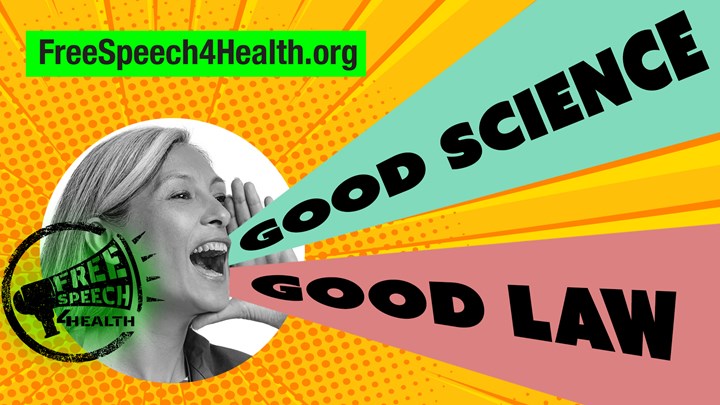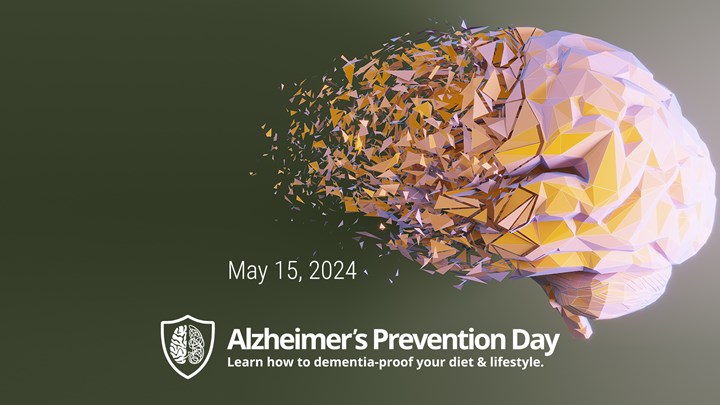Content Sections
- ● Artificial sweeteners + carbs harmful to health
- ● Calls for regulators to release statin safety data
- ● Public Health England exhorts smokers to vape
- ● US FDA launches GMO promotion tool
- ● Call for supermarkets to ban the sale of pesticides
- ● Bayer shareholder files lawsuit
- ● Visceral fat causes brain inflammation
- ● Low carb diet and caloric restriction for brain health
- ● Is your home spying on you?
Artificial sweeteners + carbs harmful to health
Combine artificial sweeteners with carbohydrates and you have a recipe for metabolic disaster according to a new study. Publishing in Cell Metabolism researchers have found that combining the common non-nutritive sweetener, sucralose, with maltodextrin impaired insulin sensitivity and glucose metabolism as well as changing the way our brain responds to sweet tastes. Speaking to NutritionInsight, the International Sweeteners Association insisted the use of sweeteners is key to tackling the obesity epidemic and that they are safe to use, regardless of the growing body of evidence linking them to increased risks of becoming obese. Given sucralose is found in thousands of commonly consumed processed foods, almost all of which contain carbs, many are being needlessly exposed to an artificial ingredient that is likely worsening their condition. Non-nutritive sweeteners also trigger an insulin spike, which increases insulin resistance and metabolic dysfunction. Increasing evidence demonstrates that sweeteners are not the panacea they’re touted to be as a solution to the obesity epidemic.
Calls for regulators to release statin safety data
We’re told statins are safe, but seek actual proof through hard evidence and you’ll come up against a brick wall and be palmed off with glowingly positive, industry-sponsored, studies. A new study challenges regulators to make raw data, zealously guarded by industry, available to researchers questioning the claimed safety of statins. Contrary to media claims, those opposing continued universal prescription of statins are well-respected, high profile doctors and scientists. Until such data are made available, patients will continue to be unable to make informed choices when it comes to a medication they may not need and is known to cause a plethora of side-effects that can significantly impact health.
Public Health England exhorts smokers to vape
Yet another new report from Public Health England (PHE) seeks to reassure smokers of the safety of vaping. In it researchers express concerns over the number of smokers who believe vaping is more harmful than smoking. The reports stresses vaping is a significantly safer alternative to smoking, encouraging smokers to make the switch even though the long-term safety of vaping remains, as yet, unknown. We remain non-plussed as to how PHE can fly in the face of increasing evidence highlighting the potential harms of the raft of toxic chemicals found in e-cigarettes. Vape very much at your own risk is our opinion.
US FDA launches GMO promotion tool
The US Food & Drug Administration (FDA) has launched a new initiative in partnership with the Department of Agriculture (USDA) and Environmental Protection Agency (EPA) designed to reassure consumers of the safety of GMOs. Consisting of a website, videos, infographics and fact sheets it seeks to normalise the use of GM technologies. The launch comes following the approval of labels using the term ‘bioengineered’ rather than GM to reduce opposition from consumers. The site blatantly ignores evidence showing the harms from intensive agriculture systems using GMO crops and associated chemicals not only to human health, but insect life, animals and the environment. In the interests of balanced evidence, The Institute for Responsible Technology publishes comprehensive GMO health information on its website.
Call for supermarkets to ban the sale of pesticides
The Pesticide Action Network UK (PAN) is calling on UK supermarkets to remove pesticide products from their shelves. With once common species such as hedgehogs, garden birds, insects and frogs in massive decline, stopping the use of toxic chemicals in our gardens could provide the opportunity for these important animals to thrive again. Have your say and take action today to protect nature and your health from products that have no place in our homes or gardens. It’s not just the animals that will benefit, but human health and the environment too.
Bayer shareholder files lawsuit
A Bayer shareholder has moved to sue a range of present and former top executives claiming the takeover of embattled Monsanto has “inflicted billions of dollars of damages” on the company. Naming Bayer CEO, Werner Baumann and its Chairman Werner Wenning, who recently announced his early retirement, the lawsuit alleges Bayer obtained a draft of the lawsuit through corporate espionage, which triggered Chairman Werner Wenning’s decision to step down early. The move further adds to Bayer’s woes as it struggles to deal with thousands of claims against the harms caused by Monsanto’s Roundup and Dicamba herbicides.
Visceral fat causes brain inflammation
It’s already known fat around our middle is particularly bad for our health. However, published in The Journal of Clinical Investigation, a new study demonstrates for the first time that visceral fat (VAT) also harms brain health. The new study has found evidence that the pro-inflammatory cytokine interleukin-1 beta, produced by VAT, can cross the blood-brain barrier and rev up the activity of brain microglia causing inflammation in the brain. Using a low carb diet can help you reduce stores of VAT, in turn reducing inflammation and improving brain health. Rob Verkerk PhD’s recent presentation at the Get Well Show discussing the benefits of low carb/high fat diets is now available to purchase for a nominal sum in our webshop.
Low carb diet and caloric restriction for brain health
Low carb diets may help prevent and reverse age-associated changes to brain function. Researchers publishing in PNAS found glucose reduces brain function while ketones have the opposite effect, promoting stronger and healthier brain networks. A new rat study has added to the evidence base supporting caloric restriction as an effective way to protect against the effects of ageing. The ANH-Intl Food4Health guidelines advocate a low carb/high fat diet high in plant foods along with regular fasting and caloric restriction to support good brain health at any age.
Is your home spying on you?
With the explosion of the Internet of Things and the introduction of 5G, we’re connecting more and more devices in our homes to the Internet, but have you considered how your data is being used or who may be watching you? The National Cyber Security Centre (NCSC) has issued a warning that smart devices such as baby monitors, wireless doorbells and cameras are vulnerable to attack by hackers. Take a moment to step back and ask yourself just how necessary such technologies are. If you still decide to use them make sure you know how your data are being used and take the necessary steps protect yourself against hackers!








Comments
your voice counts
There are currently no comments on this post.
Your voice counts
We welcome your comments and are very interested in your point of view, but we ask that you keep them relevant to the article, that they be civil and without commercial links. All comments are moderated prior to being published. We reserve the right to edit or not publish comments that we consider abusive or offensive.
There is extra content here from a third party provider. You will be unable to see this content unless you agree to allow Content Cookies. Cookie Preferences